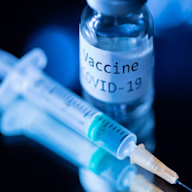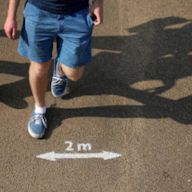Search results
Find links to guidance and information on all topics related to COVID-19, including the COVID-19 vaccine, symptom self-check, data, and other topics. CDC provides credible COVID-19 health information to the U.S.
- Symptoms
Symptoms can include: Fever, cough, shortness of breath. CDC...
- How it Spreads
The virus is thought to spread mainly from person-to-person:...
- Prevention and Treatment
There is currently no vaccine to prevent coronavirus disease...
- Information for Travel
This page includes information about Coronavirus Disease...
- Cases in the US
Cases have been identified in a growing number of...
- FAQ
Disease basics, prevention, pregnancy and COVID-19, public...
- Symptoms
- Overview
- Symptoms
- Causes
- Risk Factors
- Complications
- Prevention
COVID-19, also called coronavirus disease 2019, is an illness caused by a virus. The virus is called severe acute respiratory syndrome coronavirus 2, or more commonly, SARS-CoV-2. It started spreading at the end of 2019 and became a pandemic disease in 2020. The virus that causes COVID-19 spreads most commonly through the air in tiny droplets of fl...
Typical COVID-19symptoms often show up 2 to 14 days after contact with the virus. Symptoms can include: 1. Dry cough. 2. Shortness of breath. 3. Loss of taste or smell. 4. Extreme tiredness, called fatigue. 5. Digestive symptoms such as upset stomach, vomiting or loose stools, called diarrhea. 6. Pain, such as headaches and body or muscle aches. 7....
COVID-19is caused by infection with the severe acute respiratory syndrome coronavirus 2, also called SARS-CoV-2. The coronavirus spreads mainly from person to person, even from someone who is infected but has no symptoms. When people with COVID-19 cough, sneeze, breathe, sing or talk, their breath may be infected with the COVID-19virus. The coronav...
The main risk factors for COVID-19are: 1. If someone you live with has COVID-19. 2. If you spend time in places with poor air flow and a higher number of people when the virus is spreading. 3. If you spend more than 30 minutes in close contact with someone who has COVID-19. Many factors affect your risk of catching the virus that causes COVID-19. H...
Complications of COVID-19include long-term loss of taste and smell, skin rashes, and sores. The illness can cause trouble breathing or pneumonia. Medical issues a person already manages may get worse. Complications of severe COVID-19illness can include: 1. Acute respiratory distress syndrome, when the body's organs do not get enough oxygen. 2. Shoc...
The Centers for Disease Control and Prevention (CDC) recommends a COVID-19 vaccine for everyone age 6 months and older. The COVID-19 vaccine can lower the risk of death or serious illness caused by COVID-19. It lowers your risk and lowers the risk that you may spread it to people around you. The COVID-19vaccines available in the United States are: ...
Coronavirus disease (COVID-19) is an infectious disease caused by the SARS-CoV-2 virus. Most people infected with the virus will experience mild to moderate respiratory illness and recover without requiring special treatment. However, some will become seriously ill and require medical attention.
Aug 9, 2023 · Learn about the symptoms, treatment, prevention and vaccination of COVID-19, a disease caused by the SARS-CoV-2 coronavirus that spreads between people in close contact. Find out the latest updates on the global response to the pandemic and the impact of long COVID.
Track Covid-19 in your area, and get the latest state and county data on cases, deaths, hospitalizations, tests and vaccinations.
Find the latest data and trends on COVID-19 cases, hospitalizations, deaths, vaccinations, variants, and more in the United States. Explore interactive maps, graphs, and charts from the Centers for Disease Control and Prevention.
Mar 15, 2024 · Learn about the possible symptoms of COVID-19, how to seek medical attention, and how to differentiate it from flu. Find historical and updated information on the CDC website.











